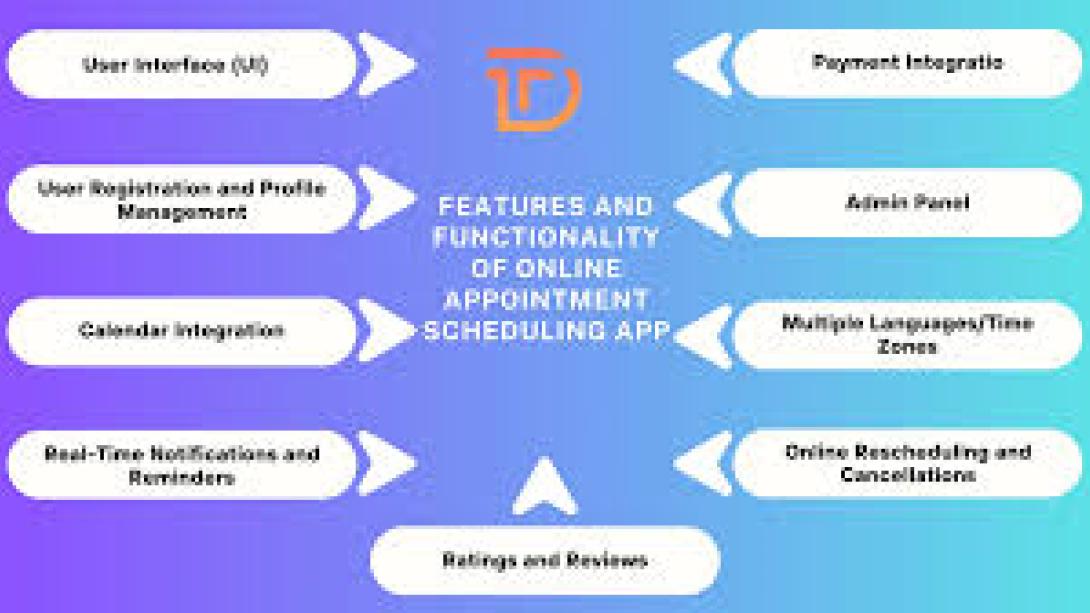How to Build a Booking System

The need for an efficient and reliable booking system is growing across various industries, from hospitality and travel to healthcare and fitness. A well-designed booking system can streamline operations, enhance customer experience, and provide businesses with essential data for better decision-making. While many off-the-shelf booking solutions exist, custom software development is often the best option for creating a booking system that fits perfectly with the specific needs of a business. Building a custom booking system offers flexibility, scalability, and the ability to integrate unique features tailored to the business's operations. In this blog, we will discuss how you can leverage online appointment scheduling app development services to build a booking system.

Understanding the Importance of a Booking System
Booking systems have become an essential tool for businesses that rely on scheduling appointments, reservations, or service bookings. For customers, an intuitive and easy-to-use booking system offers convenience and efficiency, allowing them to make reservations at any time without the need to interact with a representative. For businesses, these systems automate crucial tasks such as managing availability, processing payments, and sending reminders, leading to smoother operations and reduced errors. Investing in appointment web app development allows companies to create custom solutions tailored to their specific workflows and customer needs. Custom software development can help address the unique challenges a business faces and build a system that aligns with specific goals and requirements.
Planning the Features and Requirements
The first step in building a custom booking system is understanding the requirements of the business. Different industries require different features and functionality. For example, a hotel booking system would need to handle room availability, seasonal pricing, and multi-location support, whereas a fitness center might require features like personal trainer availability, class scheduling, and membership management. Similarly, businesses that rely on client consultations or team coordination can benefit from meeting scheduling software that streamlines appointment setting, manages availability, and reduces scheduling conflicts.
Designing and Developing the Booking System
Once the features and requirements are clear, the next step is the actual design and development of the system. Custom software development allows for the creation of a booking system that perfectly fits the business's workflow and customer preferences.
The design phase focuses on creating an intuitive user experience. This involves deciding on the layout, colors, and functionality that will make the system easy to use. The aim is to create an interface that guides users through the booking process without confusion or delays. Clear calls to action, simple navigation, and easy-to-read layouts are key to improving usability and ensuring customers can make their bookings with minimal effort.
Testing and Refining the System
Before launching the system, thorough testing is essential to ensure that everything functions correctly. Testing should focus on usability, functionality, and security. The booking process should be seamless, from making a reservation to confirming a booking and processing payments. Performance testing ensures that the system can handle multiple users and high traffic, especially during peak booking periods.
Integrating with Other Systems
A custom booking system can be designed to integrate with other tools that the business already uses, such as customer relationship management (CRM) systems, email marketing platforms, or accounting software. These integrations allow for better data management, customer insights, and streamlined communication between departments.
Ensuring Scalability and Future Growth
A custom booking system should not only meet the current needs of the business but also be scalable for future growth. As the business expands, the booking system should be able to handle increased traffic, more complex booking processes, and the addition of new services or locations.
Benefits of Online Appointment Scheduling for Business & Customers
Online appointment scheduling offers numerous benefits for both businesses and customers by streamlining the booking process and enhancing overall efficiency. For businesses, it reduces administrative workload, minimizes scheduling errors, and allows staff to focus on delivering better service. Automated reminders help decrease no-shows, while real-time availability improves time management and resource allocation. For customers, the convenience of booking appointments anytime, from any device, eliminates the need for phone calls or long wait times. This kind of functionality is especially valuable in industries like beauty and wellness, where seamless scheduling is essential—and understanding the cost of developing a on demand beauty services app can help businesses plan effectively for integrating such powerful tools. Ultimately, online scheduling boosts customer satisfaction and helps businesses operate more smoothly and professionally.
Conclusion
Building a booking system is a powerful way to streamline business operations, reduce manual work, and improve the customer experience. Custom software development offers businesses the opportunity to create a tailored booking system that fits their unique needs, enhances operational efficiency, and integrates seamlessly with other systems. For new ventures, hiring app development company for startups can ensure the booking system is built with scalability and future growth in mind. From planning and design to testing and integration, the development of a booking system should be handled with care to ensure it provides value for both customers and businesses. Custom solutions empower businesses to offer a personalized and scalable booking experience that supports long-term growth and success.